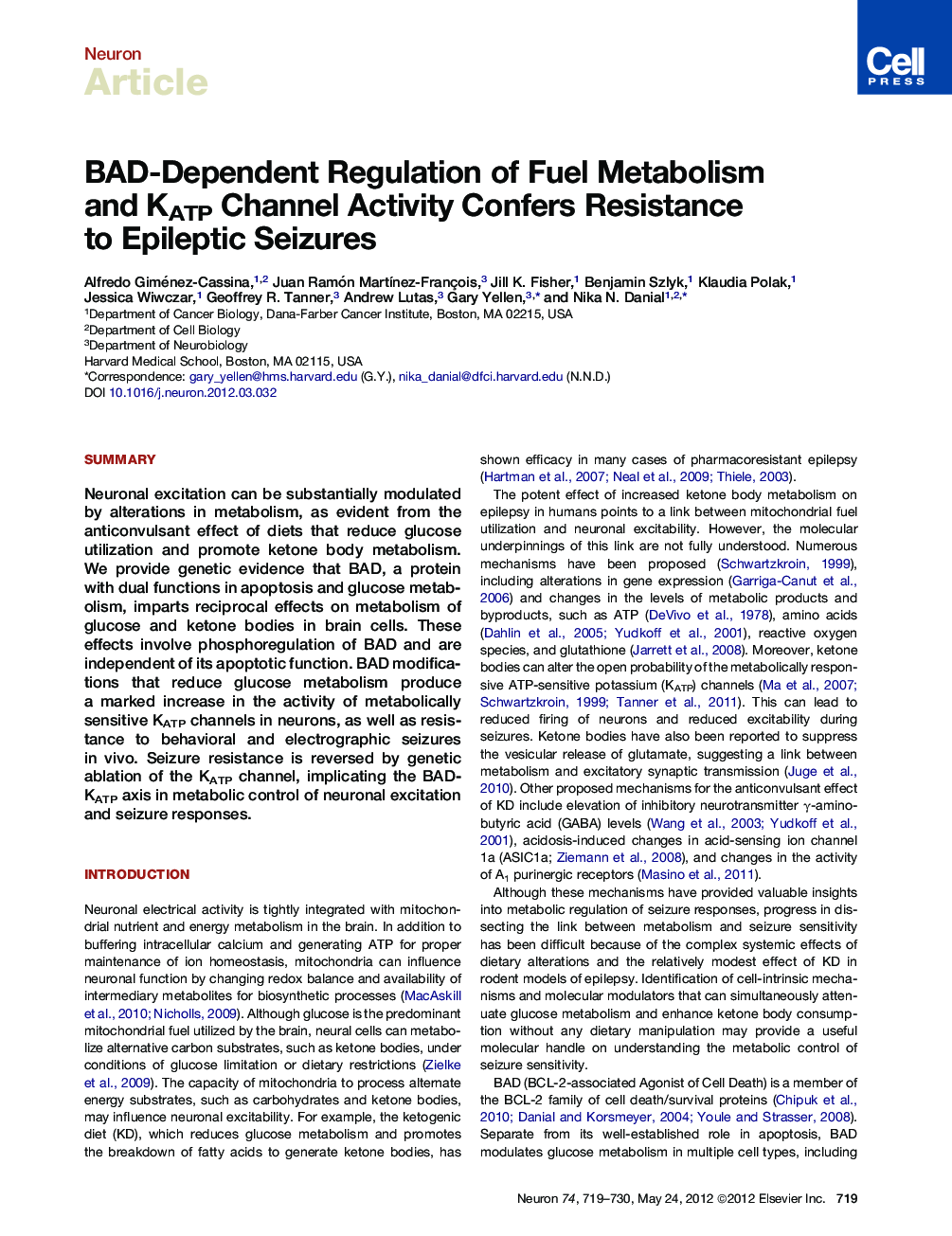| Article ID | Journal | Published Year | Pages | File Type |
|---|---|---|---|---|
| 4321808 | Neuron | 2012 | 12 Pages |
SummaryNeuronal excitation can be substantially modulated by alterations in metabolism, as evident from the anticonvulsant effect of diets that reduce glucose utilization and promote ketone body metabolism. We provide genetic evidence that BAD, a protein with dual functions in apoptosis and glucose metabolism, imparts reciprocal effects on metabolism of glucose and ketone bodies in brain cells. These effects involve phosphoregulation of BAD and are independent of its apoptotic function. BAD modifications that reduce glucose metabolism produce a marked increase in the activity of metabolically sensitive KATP channels in neurons, as well as resistance to behavioral and electrographic seizures in vivo. Seizure resistance is reversed by genetic ablation of the KATP channel, implicating the BAD-KATP axis in metabolic control of neuronal excitation and seizure responses.
► Genetic alteration of BAD blunts epileptic seizures without affecting cognition ► BAD modulates seizure sensitivity through metabolic and not apoptotic signaling ► BAD has reciprocal effects on oxidation of glucose and ketone bodies by brain cells ► KATP channels mediate the anticonvulsant effect of BAD alteration
